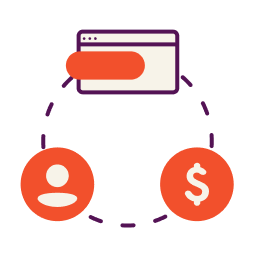You’ve got a great business opportunity, but there’s just one thing stopping you: money. With the right financing you could move forward, but your credit score isn’t where it needs to be to get funding. What can you look for in your scores to take care of a poor score and what can you do to get there?
Here are some common ways you can quickly move your score in the right direction. Keep in mind these aren’t set in stone. In addition, credit scoring models vary, and your results will definitely vary.
The Fastest Way to Impact Your Credit
Time to impact credit: 30 to 60 Days or Less
Potential impact: 30 to 75 points or more
Looking for a quick fix? Here are some steps that may have the greatest impact in the short term.
Reduce High Credit Card Balances
If any of your credit card balances appearing on your credit reports are high in comparison to your limits, those high “debt usage” or “utilization” ratios may be bringing down your credit scores. There’s no specific ratio you need to stay below, but balances above 20% to 25% of the limit can often start having a negative impact. The higher the ratio, the greater the impact.
Paying down credit card balances can be effective here, as can paying earlier (for those who pay in full), or transferring a balance to a personal loan that will be reported as an installment loan. Consolidating with a 401k loan that doesn’t appear on credit reports can also solve the problem, though that may carry additional financial risks.
Remove a Tax Lien
Tax liens are considered very negative items, in the same category as collection accounts and charge-offs. And even worse, they can be reported indefinitely if they remain unpaid (though credit reporting agencies generally remove them after 10 years). Once paid, they can remain on credit reports for seven years.
A relatively recent program from the IRS, called the Fresh Start program, allows taxpayers to request to have an eligible federal tax lien released when it is satisfied or while it is being paid through an installment plan. Once a tax lien is released, the taxpayer can then request it be withdrawn, which removes it from the credit report. Find out if you qualify and if you do, use IRS Form 12277 to request the withdrawal. (Your state may have a similar program for state tax liens; you’ll have to ask your state taxing authority.)
Remove a Collection Account
Collection accounts are also very negative, and many are for medical bills, which sometimes slip through the cracks or are the results of insurance disputes. There are efforts underway to avoid penalizing consumers for collection accounts that have been resolved, or for some medical bills that wind up in collections. But under the most widely used credit scoring models today, a collection account is often considered negative regardless of the type of debt and regardless of whether it is paid or unpaid. (Some credit scoring models exclude collection accounts where the original balance is less than $100, and newer ones will ignore collection accounts that have been paid.)
So your best bet, whenever possible, is to try to get a collection account removed if you can. But that’s not easy to do. Collection agencies are not supposed to remove collection accounts simply because the consumer pays it. But you may be able to convince them to make an exception. Say, for example, you discovered a final utility bill wound up in collections after you moved, but you thought you had paid it and never received a notice that there was a balance due. You may be able to convince the collection agency to stop reporting it if you pay it, given the circumstances.
The time to try to negotiate a concession is before you pay it; after you’ve paid it you’ve lost your leverage. If you’re already paid it you can certainly try, though. If you believe anything about the item on your credit report is inaccurate or incomplete, you have the right to dispute it. If you dispute it with the credit reporting agency and the company furnishing the information does not respond to the dispute, then the item will be removed.
Add an Aged Account
If your credit history is a bit skimpy, or you don’t have many positive accounts reporting, adding a credit reference with a long-term payment history can help. Do you have a family member who is willing to add you to one of their credit cards as an authorized user? For this strategy to work, the account should be one that’s in good standing, with a clean payment history and low debt usage, of course.
If they are willing to help you out this way, you don’t even have to use the card. Typically, the account will be reported on your credit reports (as it is on theirs) with the notation that you are an authorized user. The entire account history will usually be reported. That means if they got the card 10 years ago, your credit score benefits from 10 years of payment history. (That’s a good thing; older accounts can help your credit scores.) You may not get the full weight of the benefit of the account as the authorized user, but it is very likely to help.
Longer-Term Ways to Take Care of Your Credit
Time to impact credit: 12 to 24 months
Potential impact: 25 to 50 points or more
If you have more time and patience, there are steps you can take to set yourself up for better credit in the future. Don’t worry; that future will be here soon enough and you’ll be glad you laid the groundwork for better credit now.
Add an Account
If you don’t have many credit references reporting (i.e. you’re a “credit ghost”) or you need to establish a positive payment history after a rough patch, adding a new account can be helpful. If your credit scores aren’t strong, you may need to consider a secured card, a credit builder account, or both. A new account gives you the opportunity to demonstrate a positive payment history.
This isn’t a quick fix; you’ll need to establish a track record with the new account over time to see results. But if you pay on time and keep your debt usage ratio low, you should see your credit scores gradually increase over time.
Let Negative Information Age
Most negative information remains on credit reports for up to seven years, which can be incredibly frustrating. You may feel like those payments you missed years ago are going to hurt you forever.
Over time, though, negative information carries less weight, especially if there are current positive credit references reported. In particular, information in the most recent 24 months carries the most weight. So in addition to making sure you have accounts reporting that demonstrate a positive payment history now, you can also take some assurance in the fact that as negative information becomes older it becomes less and less important over time. It still counts; but the impact diminishes, especially when your credit reports contain current on-time payments since then.
Make sure the dates reported on your credit reports are accurate; otherwise information may be reported longer that it should be. Then check your credit reports to make sure it has been removed when it’s supposed to be.
Let Inquiries Age
Did you shop for credit and wind up with a bunch of inquiries on your credit reports as a result? Inquiries don’t usually hurt credit scores significantly. The typical drop is around 3 to 5 points. But some consumers have reported an overall drop of 30 to 40 points after a weekend of car shopping, for example.
The good news is that after 12 months, inquiries don’t figure into most credit scoring models. So if you can wait it out, you should see their effect evaporate after that time period. After two years they will drop off your credit reports completely.
Pay Down Debt
As mentioned earlier, reducing your debt usage ratio on your credit cards can have a positive impact on your credit scores. If you don’t have the cash to immediately pay down your balances however, or if your credit scores don’t qualify you for a personal loan, you may want to talk with a reputable nonprofit credit counseling agency to find out whether it makes sense to consider a Debt Management Program (DMP) to pay off your debt.
The counseling agency can often negotiate reduced interest rates, and you’ll make one monthly payment to the agency, which will then pay each of your participating creditors. (Note that this is quite different from debt settlement, a process where you stop paying your creditors and then try to negotiate to pay less than the full amount owed.)
In the short-term, one of these programs may hurt your credit scores because you will have to close your credit card accounts. But in the long run you can benefit. Most consumers who successfully complete one of these programs are able to pay off their debts in 36 to 48 months.
More From Nav
Business Credit Cards for Bad Credit
What Is a Good Business Credit Score?
How to Establish Business Credit
This article was originally written on December 13, 2016 and updated on March 23, 2023.



From my personal experience so far regarding my credit profile,i earlier didn’t know how about it was and when i knew i had foreclosures,later payments and even over dues,i felt really bad because then it was late and the result of my bad credit affected my credit score which was about 379 and to get my loan approved i needed 700 and above,i sort for help from big credit repair companies,but they couldn’t help me get my score where i wanted to be in the short period i need to get a loan to keep a roof over my child’s head,till a lender introduced me to a repair man who has access to this credit companies who got my credit clean and also educated me about how to maintain my credit and maintain a really good score, (COMPUTERSPYEXPERTS at GMAIL dot COM) is where ill refer anyone that needs a deadline fix on there credit .you can thank me later.